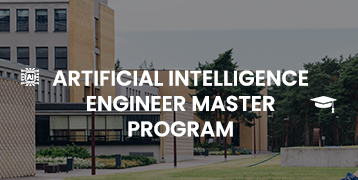
What is Pro*C?
Pro*C means creating a program that is embedded with SQL statements. We can access the Oracle database with the help of Pro*C. The C language provides the flexibility for data processing by manipulating or retrieving the data from the Oracle database. Therefore, we can say that Pro*C allows the C language to connect the C program with the Oracle database and do the manipulations according to our requirements.
A-Pro*C program is compiled into two steps. First, the Pro*C precompiler recognizes the SQL statements embedded in the program and replaces them with the appropriate calls to the functions in the SQL runtime library. The output is pure C/C++ code with all the pure C/C++ portions intact. Then, a regular C/C++ compiler is used to compile the code and produce the executable.

Pro*C/C++ Precompiler Benefits?
Pro*C/C++ enables:
- Writing applications in the C or C++.
- Following the ANSI/ISO standards for embedding SQL statements in the high-level language.
- Taking the advantage of dynamic SQL, an advanced programming technique that lets your program to accept or build any valid SQL statement at the runtime.
- Designing and developing highly customized applications.
- Writing shared server process applications.
- Automatically converting between the Oracle internal datatypes and the high-level language datatypes.
- Improved performance by embedding the PL/SQL transaction processing blocks in your application program.
- Specifying the useful precompiler options inline and on the command line and change their values during the precompilation.
- The use of datatype equivalencing to control the way Oracle interprets input data and formats the output data.
- Separately precompiling several programming modules, then linking them into one executable Program.
- Complete checking of the syntax and semantics of the embedded SQL data manipulation statements and the PL/SQL blocks.
- Concurrent access to the Oracle databases on multiple nodes using Oracle Net.
- The use of arrays as input and output program variables.
- Conditionally precompiling the sections of code in your host program so that it can run in different environments.
- Direct interface with the SQL*Forms through the use of user exits written in a high-level language.
- Handling errors and warnings with the SQL Communications Area (SQLCA) and the WHENEVER or DO statement.
- The use of an enhanced set of the diagnostics provided by the Oracle Communications Area (ORACA).
- Working with user-defined object types in the database.
- The use of collections (arrays and nested tables) in the database.
- The use of LOBs (Large Objects) in the database.

- The use of National Character Set data stored in the database.
- The use of OCI (Oracle Call Interface) functions in your program.
- The use of multi-threaded applications.
- Microsoft Visual Studio .NET 2002/2003 support.
According to Indeed’s latest reports, Pro C professional is paid around $98k
GoLogica is offering Pro C training. This course will lead you to successfully clear the examination which will get you to be a certified Pro C Developer. This program is called Pro C Training. With this course, you would be able to understand the methodologies, implementation and various other important features of Pro C to work on the different kinds of projects.
At the end of this course, you will receive a course completion certificate that certifies that you have successfully completed GoLogica training in Pro C technology. You will get certified in Pro C by clearing the online examination with a minimum score of 70%. To help you prepare for the certification exam, we shall provide you a simulation exam and a practice exam.










